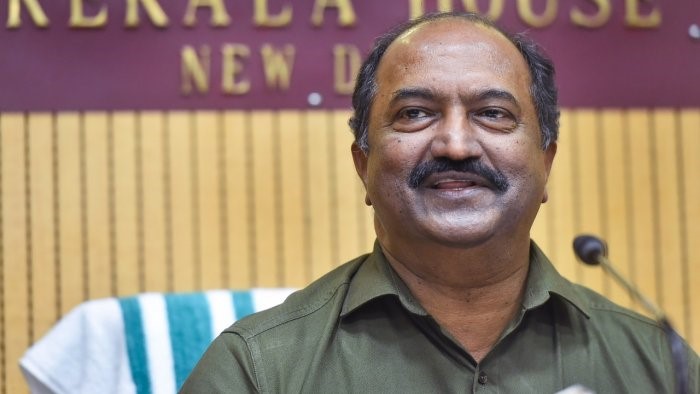
SC only looked into technical aspects of demonetisation: Kerala Fin Min

Criticising the Supreme Court’s verdict upholding the Centre’s 2016 decision to demonetise Rs 1,000 and Rs 500 denomination notes, Kerala Finance Minister K N Balagopal on Monday said the apex body had only looked into its legal and technical aspects, despite the fact that the move had economically and socially impacted the economy.
The Minister said practically the economic and social impact of the Union government’s decision was very serious and was detrimental to the growth of various sectors. “It ruined for some time many areas of the economy. The economy was badly hit by the decision at that time,” he told PTI.
Also Read: Demonetisation verdict: BJP feels vindicated; Cong leans on only dissenting voice
The 2016 decision of the Union government created an “economic crisis or slowdown” at that time and the same has been proved by different studies by various agencies, economists, and financial experts, the Minister said. “The economic growth was affected. Many sectors’ growth was detrimentally impacted by demonetisation,” he said.
Certain sectors, like construction, small businesses, manufacturing — especially small and medium enterprises — and agriculture, were adversely hit by that decision, he said. “You can also recall the hardship faced by the people at that time. Lakhs of people stood in queues to get some money. Actually, it was a disastrous situation. Some people died standing in line for money.
“People were starving for money to meet marriage or hospital expenses, medical treatments and even for daily needs. Things came to a standstill. Many small and medium enterprises were closed down and they never reopened,” he said. Balagopal said that the “campaign and argument” about demonetisation which was raised by the ruling government was that it will bring back or curtail the black money in circulation.
“But what happened was that 99 per cent of the currency, of those two denominations, which were in circulation were brought back. Later, when the government introduced Rs 500 and Rs 2,000 denominations, the money in circulation became more than what was in the earlier case,” he contended and added that “what they argued never happened”.
The BJP in Kerala, on the other hand, said the verdict was a blow to all those who were waiting for the Central government to face a setback from the Supreme Court. The decisions taken by the Narendra Modi government are for the sake of the people and the progress of this country, BJP State president K Surendran said in a Facebook post.
Earlier, speaking to reporters after the verdict was delivered, Balagopal said that the apex court only examined the legal aspects of the decision-making process, but the fact remains that the adverse impact of demonetisation on the commercial, service agriculture and various other sectors was continuing.
“There is no solution in the verdict to the financial crisis that resulted out of it (demonetisation),” Balagopal said. Its impact would also be seen in the future, he added. He further said that there was also a difference in views among the judges of the Constitutional Bench which delivered the verdict as one of them said demonetisation ought to have been done by way of legislation.
Also read: SC upholds demonetisation, says ‘whether objective achieved or not is irrelevant’
Balagopal said demonetisation was one of several decisions taken by the Centre under the BJPs leadership that have adversely affected the States and the general public. After demonetisation, they are now going forward with monetisation — to sell off the public sector undertakings and enterprises, he contended.
Meanwhile, former Kerala Finance Minister Thomas Isaac said the apex court upholding the Centre’s decision “does not make it (demonetisation) a less Himalayan blunder”.
He contended that demonetisation “torpedoed” India’s 8 per cent growth and resulted in a national GDP loss of nearly Rs 15 lakh crore.
“SCs majority decision that demonetisation was legal, does not make it a less Himalayan blunder that torpedoed India’s 8 per cent growth, resulted in a national GDP loss of nearly Rs 15 lakh crore and horrendous suffering to the people. Those responsible shall be tried in people’s court,” Isaac tweeted.
The Supreme Court in a 4:1 majority verdict on Monday upheld the government’s 2016 decision to demonetise the Rs 1,000 and Rs 500 denomination notes, saying the decision-making process was not flawed.

